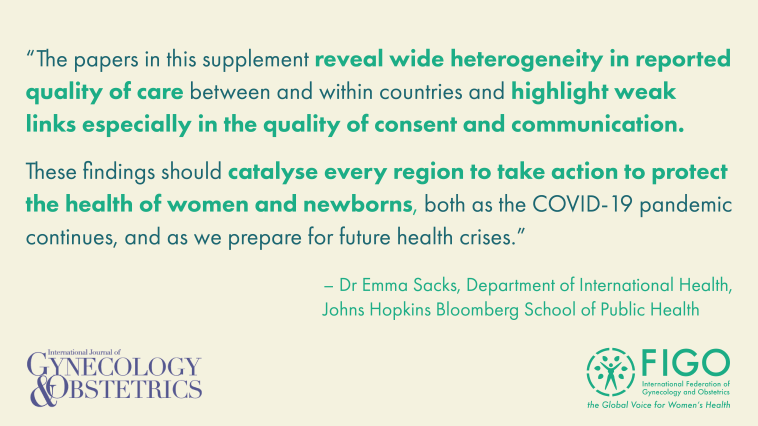New IJGO supplement: IMAgiNE EURO: Maternal perspectives of facility-based health care around the time of childbirth in the WHO European Region

The International Journal of Gynecology and Obstetrics (IJGO) has published a new open access supplement on the IMAgiNE EURO project. The supplement, published in December 2022, provides ten in-depth papers on women’s perspectives on the quality of maternal and newborn care during the COVID-19 pandemic in 20 European countries.
During the pandemic, many questions arose about how to reduce transmission risk in maternal and newborn health facilities, and there was widespread uncertainty about COVID-19 susceptibility in pregnant women, vertical transmission, and disease severity among women and newborns.
The IMAgiNE EURO project
The IMAgiNE EURO project developed, tested, and deployed two online surveys: one for women who gave birth during the COVID-19 pandemic and one for health workers providing maternal and newborn care in health facilities.
The surveys included questions on sociodemographic characteristics, plus 40 questions based on the WHO standards in three categories: (1) provision of care; (2) experience of care; and (3) availability of human and physical resources, plus a fourth category of key organisational changes related to the COVID-19 pandemic.
The IJGO IMAGiNE EURO supplement provides data on the perceived quality of maternal and newborn care from over 60,000 women who gave birth in the WHO European Region during the COVID pandemic. For the first time, women were surveyed using a standardised set of questions based on the WHO Standards for Quality Maternal and Newborn Care.
The papers include an analysis of medicalisation of birth, comparison of experiences in public versus private facilities, description of the experiences of migrant women compared with their non-migrant counterparts, and in-depth analyses from 10 countries.
– Dr Emma Sacks, Department of International Health, Johns Hopkins Bloomberg School of Public Health
Supplement key findings
According to Dr Sacks, “the papers reveal wide heterogeneity in reported quality of care between and within countries and highlight weak links especially in the quality of consent and communication. These findings should catalyse every region to take action to protect the health of women and newborns, both as this pandemic continues, and as we prepare for future health crises.”
In particular, from the seven national-level papers in this supplement, two main themes emerge:
- a wide heterogeneity in quality of care exists between countries, with those in higher-resource settings generally reporting higher quality of care, but still noting important quality gaps – especially around informed consent and autonomy
- inequity exists within countries, with marginalised groups (including those who do not speak the dominant language) generally reporting worse experiences of care.
Ultimately, the supplement authors highlight that collecting accurate and updated data on the quality of maternal and newborn care serves to provide a roadmap for health researchers and policymakers to guide the necessary national quality improvements.